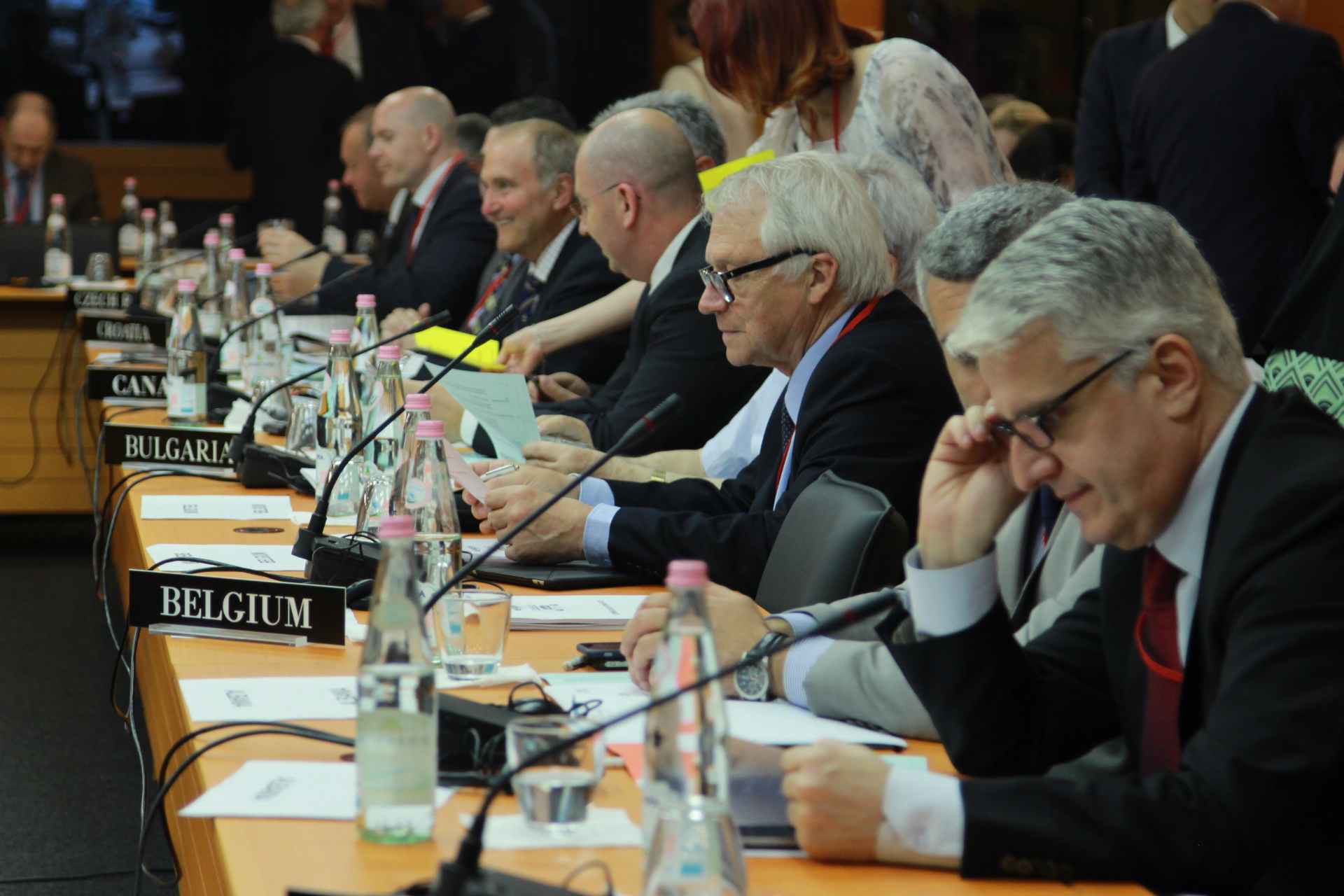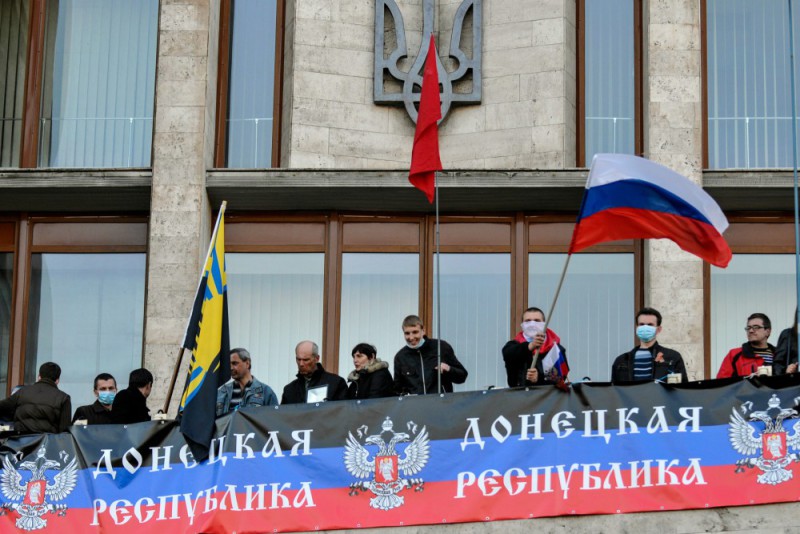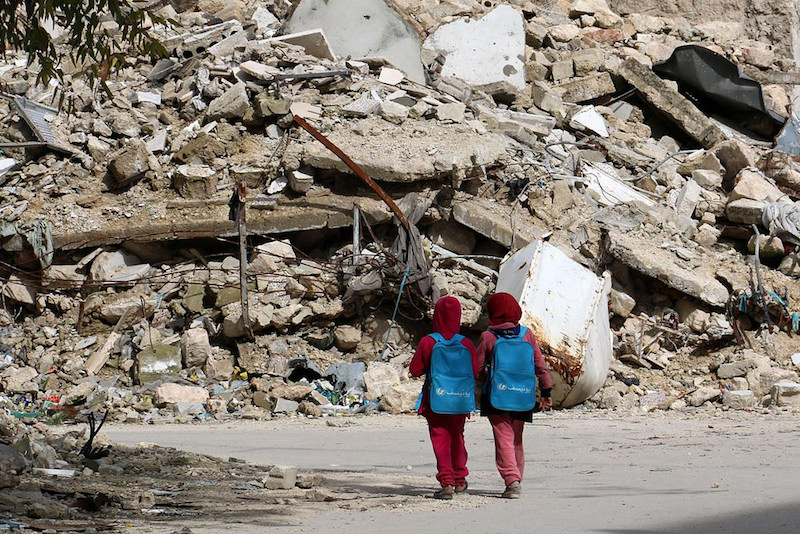Six weeks before the start of the Warsaw Summit, NATO Parliamentary Assembly (NATO PA) was held from May 27-30, 2016, in Tirana, the capital of Albania. Albania is one of the newest members of the Alliance, which joined simultaneously with Croatia on April 2009. About 250 lawmakers from 28 NATO member countries and partners gathered in Tirana, amid tight security for the three-day Assembly. Its aim was to endorse a declaration entitled “A United and Resolute Agenda for NATO at the Warsaw Summit.” The declaration urged Alliance leaders to strengthen collective defense, and develop a complete strategy for promoting stability in North Africa and the Middle East, ensure that all allies meet military spending targets, and boost cooperation with the European Union.
NATO PA is an interparliamentary organization, which brings together legislators from NATO member countries to consider security-related issues of common interest and concern. It was established in 1955 to engage parliamentarians in transatlantic issues, and help build parliamentary and public consensus in support of policies that the Alliance undertakes. Since the 1980s, it has broadened its reach, to develop close relations with political leaders from Central and Eastern Europe, as well as from the Middle East and North Africa. The Assembly focuses on major security and policy issues, producing reports that are adopted by majority vote.
A key aspect of this Assembly was tackling Russia’s increasingly assertive position in the region. Russia’s illegal annexation of Crimea in March 2014, and its military actions in Ukraine have led transatlantic policy-makers to reassess collective defense arrangements. Canadian Senator Joseph Day is supervising a draft report that urges greater solidarity and unity among allies to address its challenges, as well as a collective push on intelligence. He emphasized that along its “eastern flank”, NATO “is dealing with a revisionist and military resurgent Russia, which has drawn in foreign fighters from many NATO countries.” The “eastern flank” refers to a region that comprises of eight Nordic and Baltic states, which have become increasingly interdependent in terms of security. This region is of increasing significance in the context of Europe’s changing security order, and defense will be high on the agenda, at NATO’s summit meeting in Warsaw, Poland. Several members of the Assembly stressed that while some dialogue with Moscow is necessary, sanctions must remain in place until Russia changes its aggressive behavior. Speaking at the Civil Dimension of Security (CDS) meeting, the President of the NATO PA, US Congressman Michael Turner, noted that Russia’s aggressiveness is increasing, as demonstrated by its recent threats against Poland and Romania.

Meanwhile, Montenegro’s Prime Minister Milo Djukanovic appealed to lawmakers to help accelerate the ratification process in their home countries, stating: “We can contribute to the strengthening of Euro-Atlantic security and security in the Mediterranean.” Montenegro signed the accession protocol to join NATO on May 19, 2016, and is set to take its seat at the Alliance’s table as soon as the protocol has been ratified by the 28 member states. The lawmakers hailed Montenegro’s recent invitation to become a full member, and said they hoped eventually to offer membership to Bosnia and Herzegovina, Macedonia, and Russia’s neighbor Georgia.
The parliamentarians agreed at the session in Tirana to boost the efforts to maintain the two percent of GDP target spending on defense. Currently, only five of the 28 member states meet that target spending of two percent of the GDP. The declaration called on leaders to bolster arrangements, thus ensuring that all allies share the defense burden, with the aim of meeting the target no later than 2020.
With terrorism on the rise, and the Islamic State group capable of launching attacks in Europe or the United States, the leaders were encouraged to consider measures to support the anti-Daesh coalition, and be ready for any request for anti-terror help from Libya. “While Daesh is losing ground in Iraq and Syria, it is attempting to gain a foothold in other regions, from Yemen to Libya,” warned Ojars Kalnins, Head of the Latvian Delegation to NATO PA. Consequently, assistance to North African and Middle East countries could also be boosted if needed, and tighter partnerships developed with the Arab League and countries of the Gulf and Africa. NATO should also boost cooperation on migration as well with the European border agency Frontex.
NATO PA, taking place for the first time in Albania, also concentrated on the Western Balkan region. Ulla Schmidt, vice-president of the German Bundestag, presented a draft report on the challenges facing the Balkans in Euro-Atlantic integration, which emphasized the need to contain ethnic tensions, and ensure that the unresolved status issues of countries, like Kosovo and Macedonia, do not impede their integration. Macedonia’s political deadlock, which has lasted for months, was also in the center of discussions. Both the EU and NATO need to make powerful efforts to ensure that the integration process there does not get suspended. Macedonia should also continue to try to resolve the years-long dispute with Greece over its name. Schmidt said it was also important for people in the Balkans to rediscover trust in their own political institutions. NATO PA stressed the importance of the alliance cooperating with the EU, and as such, the Balkan states have a huge role to play in this process.
Photo Courtesy of NATO PA.
Disclaimer: Any views or opinions expressed in articles are solely those of the authors and do not necessarily represent the views of the NATO Association of Canada.




